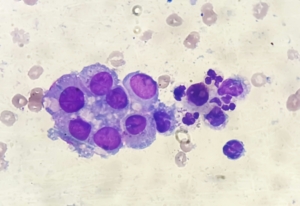
Boehringer Ingelheim expands Venture Funds to €250m
German human and veterinay medicines major Boehringer Ingelheim has more than doubled the amount in funding of its Venture Fund (BIVF) to €250m. Additionally, the investment focus has been extended to include infectious diseases and digital health.
Originally, the BIVF was designed to put investments of up to €10-15m into early stage companies focused on immunomodulation, tissue regeneration, small and large molecule drugs, and new therapeutic modalities. The fund, launched in 2010, had a volume of €100m, 22 portfolio companies from which already one exited (Okairos).
Now, the company said, it will increases the BIVC fund’s investments in US companies, double its staff and expand its investment focus to include infectious diseases and digital health. We are thrilled to be opening a second U.S.-based office in 2018, which will allow us to collaborate more closely with biotech and start-up companies on the West Coast, said Frank Kalkbrenner, M.D., Corporate Vice President and Head of the BIVF. This also brings us one step closer in our quest to be at the centre of the global digital health transformation.
Most recently, portfolio company Rigontec was acquired by Merck & Co in a €464m deal. Oncolytic virus player ViraTherapeutics entered into a potential €210m option agreement which might end up in an acquisition. Additionally, the BIVF participated in a €15.2m Series A of Belgian Rewind Therapeutics, a private company funded by technology transfer platform and investment fund CD3 (Leuven, Belgium) and CRO Axxam S.p.A. (Milano, Italy). The company develops re-myelinating therapies for patients suffering from multiple sclerosis. Merck Ventures BV (MV) and Participatiemaatschappij Vlaanderen (PMV), and KU Leuven’s Centre for Drug Design and Discovery (CD3) and KU Leuven Gemma Frisius Fonds (GFF) also participated in the investment.
BIVF investments target unprecedented therapeutic concepts addressing high medical needs in immuno-oncology, regenerative medicine, infectious diseases and digital health. These may include novel platform technologies to address so far undruggable targets, new generation vaccines and/or new biological entities.


 Unsplash+
Unsplash+
